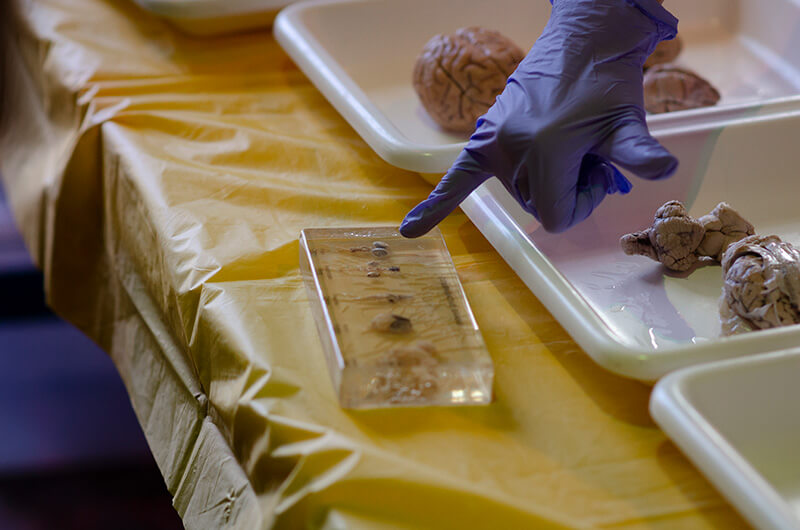The Brain Awareness Council (BAC) is a graduate student-run organization that hosts a variety of educational outreach events to encourage neuroscience education in the community, expand the general public’s familiarity with scientific research and cultivate a desire for learning in all ages.
The BAC is made up of Wake Forest University graduate students, postdoctoral fellows and faculty members. Our members regularly volunteer their time to talk about neuroscience and research through community engagement events. Information about our current events and activities can be found on our social media pages.
The BAC is run by a Steering Committee made up of graduate students in biomedical science programs at Wake Forest. Our work is a collaborative effort with many local and national organizations and businesses. Contact the Brain Awareness Council to find out more about sponsorship, donations and collaborations with the BAC.

What We Do
Our Mission
To encourage neuroscience education in the surrounding community and to expand the community’s overall familiarity with basic science research while cultivating a desire for higher learning in students of all ages.
To achieve this mission, we engage in a variety of outreach activities including the following:
- Visiting and facilitating activities at local K-12 schools.
- Planning and executing community-wide events at local venues and science centers.
- Presenting to high school and undergraduate students about careers in biomedical science and research.
K-12 School Visit Information
The Brain Awareness Council focuses much of its outreach on the youth of our community. As part of this effort, we visit many K-12 schools per semester throughout the year. During school visits we give demonstrations that highlight various aspects of the nervous system and tailor these demonstrations to various age ranges.
- For younger audiences, we typically organize each visit into 3-4 stations through which small groups of students can rotate every 10-15 minutes. Each station is facilitated by a Brain Awareness Council volunteer member who is trained to teach the content required in a captivated manner and answer questions.
- For older students (high school age), we typically organize visits into two time slots, allotting half the time towards a lecture on basic neuroscience topics and half the time towards activities. However, our offerings are flexible and can change on a case-to-case basis.
School visits are typically run with small groups of students spread throughout a large room such as a library, media room, gymnasium or with stations spread among different classrooms in a common hallway. Lab classrooms are ideal for our high school-age demonstration.
When choosing a location to facilitate the visit, the following aspects should be considered:
- Location should be easily accessible and easy to navigate through by students and teachers.
- If using multiple locations, each classroom should be close in proximity to minimize the amount of time rotating between stations.
- Real brains are brought to the classroom. While they are stored in a safe, nontoxic solution, it does have a strong odor. Additionally, while we do have lab trays to place the brains on, it is common to get a few drips on the space being used when passing around specimens. These issues can be minimized with good ventilation and disinfecting spray/wipes.
- Some stations require a power outlet and other electronically operated aids.
- Teachers and/or aides should be present during the activity to assist with classroom management.
Because we are a volunteer-run graduate student organization we have limited time and resources to conduct school visits and as such, visits are on a first-come, first-served basis. We like to maximize our outreach by asking that teachers allow us to visit more than one classroom in a single visit.
We receive many more requests each year than we can fulfill. In general, requests are granted on a first come, first served basis but a few other important factors play a role in deciding which schools to visit. To maximize our outreach while minimizing volunteer time and numbers, we give higher priority to schools that can combine classrooms and/or grades to maximize the number of student participants. We also consider distance from Wake Forest Baptist Hospital and whether your school has received a visit in the past year.
If you would like to request a school visit or have any additional questions regarding school visits, please feel free to contact the Brain Awareness Council.
